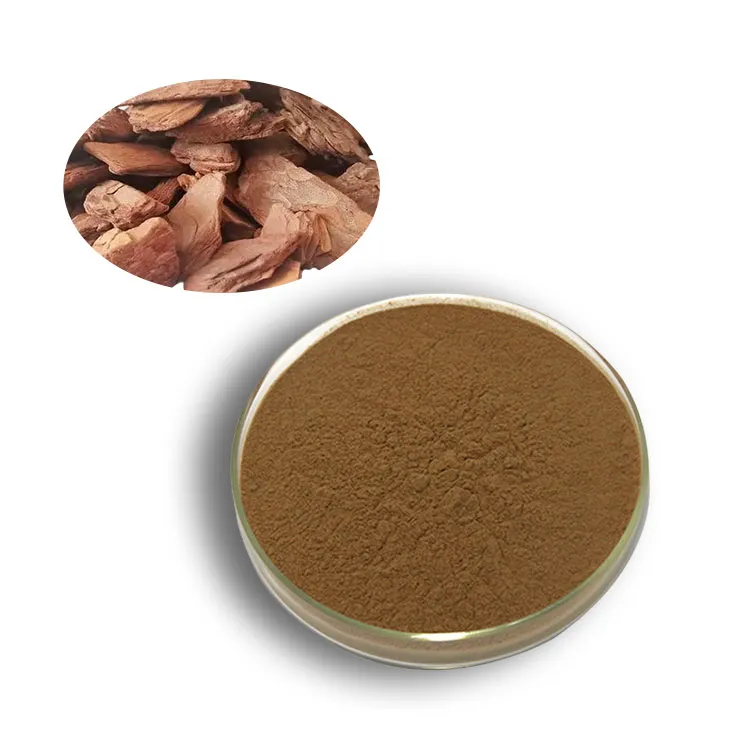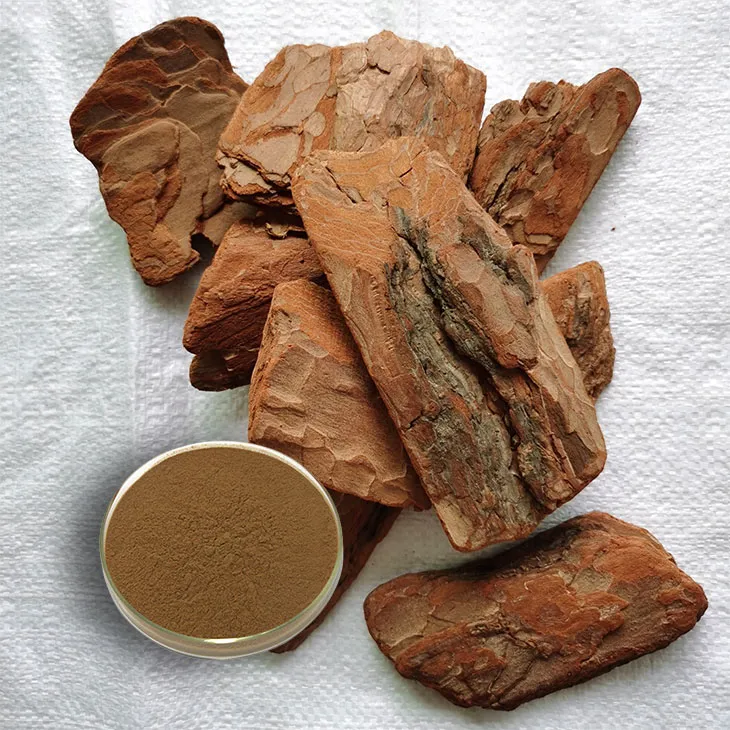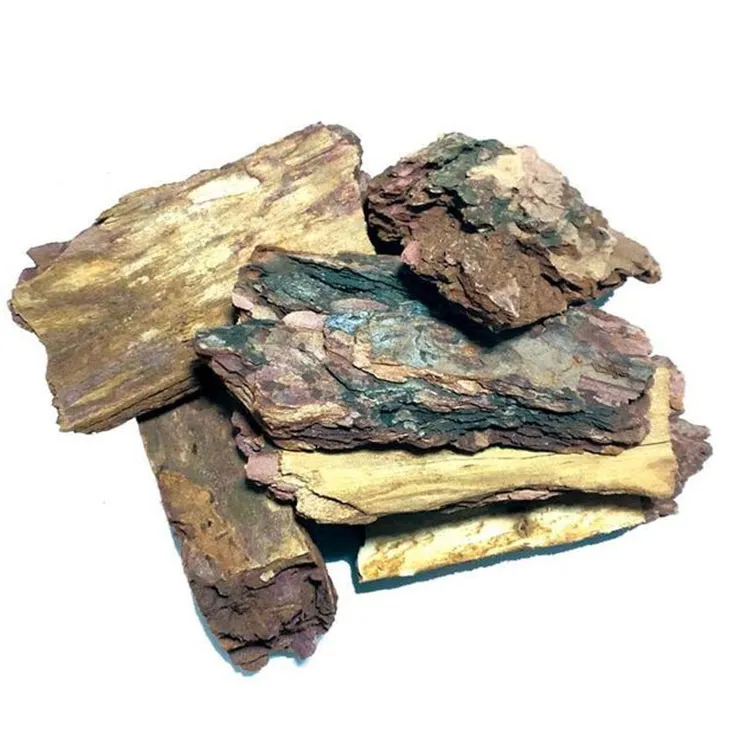- 0086-571-85302990
- sales@greenskybio.com
Pine Bark Extract Powder: Should You Use It for Skin Care?
2024-11-12

1. Introduction
In the ever - evolving world of skincare, new ingredients are constantly emerging, each claiming to offer a host of benefits. Pine bark Extract Powder is one such ingredient that has been garnering attention in recent years. Derived from the bark of pine trees, this extract has a long history of use in traditional medicine. But when it comes to modern skincare, the question remains: should you incorporate Pine bark Extract Powder into your skincare routine? To answer this question, we need to take a closer look at its origin, the scientific evidence behind its purported benefits, potential side effects, and how it stacks up against other popular skincare ingredients.

2. The Origin of Pine bark Extract Powder
Pine bark extract powder is sourced from the bark of various species of pine trees. These trees are found in many parts of the world, including North America, Europe, and Asia. The extraction process typically involves harvesting the bark from mature pine trees in a sustainable manner. Once harvested, the bark is then processed to extract the active compounds, which are then dried and powdered for use in various applications, including skincare.
Historically, pine bark has been used in traditional medicine systems for its anti - inflammatory and antioxidant properties. For example, Native American tribes used pine bark preparations to treat a variety of ailments, such as skin infections and wounds. In traditional Chinese medicine, pine bark has also been used for similar purposes.

3. Scientific Evidence of Benefits
3.1. Antioxidant Activity
One of the most well - studied benefits of pine bark extract powder in skincare is its antioxidant activity. Antioxidants play a crucial role in protecting the skin from damage caused by free radicals. Free radicals are unstable molecules that can damage skin cells, leading to premature aging, wrinkles, and a dull complexion.
Scientific studies have shown that pine bark extract powder contains high levels of phenolic compounds, such as proanthocyanidins, which are powerful antioxidants. These compounds have been shown to scavenge free radicals, reducing oxidative stress in the skin. For example, a study published in the Journal of Agricultural and Food Chemistry found that pine bark extract was effective in reducing lipid peroxidation, a process associated with free - radical - induced skin damage.
3.2. Anti - Inflammatory Properties
Inflammation is another key factor in skin health. Chronic inflammation can lead to various skin problems, including acne, rosacea, and eczema. Pine bark extract powder has been shown to possess anti - inflammatory properties.
Research has demonstrated that the extract can inhibit the production of inflammatory cytokines, such as interleukin - 1β and tumor necrosis factor - α. These cytokines are involved in the inflammatory response in the skin. By reducing their production, pine bark extract powder may help to soothe inflamed skin and reduce redness and swelling. For instance, a study on animal models showed that topical application of pine bark extract significantly reduced skin inflammation.
3.3. Skin Barrier Function
A healthy skin barrier is essential for maintaining skin hydration and protecting the skin from external irritants. Pine bark extract powder may contribute to improving skin barrier function.
Studies have suggested that the extract can enhance the production of ceramides in the skin. Ceramides are lipids that play a crucial role in maintaining the integrity of the skin barrier. By increasing ceramide production, pine bark extract powder may help to keep the skin hydrated, prevent water loss, and protect the skin from environmental stressors.

4. Potential Side Effects
While pine bark extract powder has shown many potential benefits for the skin, it is also important to consider any potential side effects.
4.1. Allergic Reactions
As with any skincare ingredient, some individuals may be allergic to pine bark extract powder. Allergic reactions can range from mild redness and itching to more severe symptoms, such as swelling and difficulty breathing. If you have a known allergy to pine or other plant - based ingredients, it is advisable to perform a patch test before using any product containing pine bark extract powder.
4.2. Irritation
In some cases, pine bark extract powder may cause irritation, especially if used in high concentrations or on sensitive skin. Signs of irritation may include redness, stinging, or burning sensations. If you experience any of these symptoms, discontinue use of the product immediately.
5. Comparison with Other Skincare Ingredients
5.1. Vitamin C
Vitamin C is a well - known and widely used skincare ingredient, renowned for its antioxidant and brightening properties.
While both pine bark extract powder and vitamin C are antioxidants, they have some differences. Vitamin C is water - soluble, which means it can penetrate the skin's water - based layers more easily. Pine bark extract powder, on the other hand, contains a variety of compounds, including lipid - soluble ones, which may allow it to interact with different parts of the skin's structure. In terms of antioxidant strength, vitamin C is highly effective at scavenging free radicals, but pine bark extract powder's antioxidant activity may be more comprehensive due to its complex composition.
5.2. Retinol
Retinol is a form of vitamin A and is a popular ingredient for anti - aging skincare.
Retinol works mainly by increasing cell turnover in the skin, which can help to reduce wrinkles and improve skin texture. Pine bark extract powder, although it may also contribute to anti - aging through its antioxidant and anti - inflammatory properties, does not work in the same way as retinol. Retinol can be quite irritating for some skin types, especially at higher concentrations, while pine bark extract powder may be a gentler alternative for those with sensitive skin who still want to address signs of aging.
5.3. Hyaluronic Acid
Hyaluronic Acid is known for its ability to hydrate the skin by attracting and retaining water.
Pine bark extract powder and hyaluronic acid have different mechanisms of action. While hyaluronic acid focuses on hydration, pine bark extract powder may improve skin hydration indirectly by enhancing the skin barrier function. However, they can also be complementary in a skincare routine. For example, a product containing both pine bark extract powder and hyaluronic acid could potentially provide both antioxidant protection and intense hydration.
6. Conclusion
Pine bark extract powder shows great promise as a skincare ingredient. Its antioxidant, anti - inflammatory, and skin barrier - enhancing properties make it a potentially valuable addition to skincare products. However, like any ingredient, it is not without potential side effects, and individual reactions may vary.
When considering whether to use pine bark extract powder in your skincare routine, it is important to take into account your skin type, any existing skin conditions, and your personal sensitivity to new ingredients. If you are interested in trying it, start with a product that contains a lower concentration of the extract and perform a patch test first. Overall, with further research and development, pine bark extract powder may become an even more important component in the world of skincare.
FAQ:
What is pine bark extract powder?
Pine bark extract powder is a substance derived from the bark of pine trees. It contains various bioactive compounds such as proanthocyanidins. These compounds are believed to have antioxidant and anti - inflammatory properties, which may contribute to its potential benefits in skincare.
What are the benefits of pine bark extract powder for skin?
The antioxidant properties of pine bark extract powder can help combat free radicals, which are harmful molecules that can damage skin cells. It may also have anti - inflammatory effects, which could be beneficial for reducing skin redness and irritation. Some studies suggest that it may improve skin elasticity and hydration, potentially helping to reduce the appearance of wrinkles.
Are there any side effects of using pine bark extract powder on the skin?
While pine bark extract powder is generally considered safe for topical use, some individuals may experience skin sensitivity or allergic reactions. It is always advisable to do a patch test on a small area of skin before using it more widely. If any redness, itching, or swelling occurs, discontinue use immediately.
How does pine bark extract powder compare to other popular skincare ingredients?
Compared to vitamin C, which is also a well - known antioxidant in skincare, pine bark extract powder may offer a different range of antioxidant compounds. Vitamin C is often used for brightening the skin, while pine bark extract powder may focus more on anti - inflammation and overall skin health maintenance. In comparison to retinol, which is famous for its anti - aging effects by promoting cell turnover, pine bark extract powder seems to work more on a cellular protection level through its antioxidant and anti - inflammatory actions.
How can one incorporate pine bark extract powder into their skincare routine?
Pine bark extract powder can be found in some skincare products such as creams, serums, and masks. You can use these products as part of your normal skincare routine, following the instructions on the product label. For example, if it is a serum, you may apply it after cleansing and toning your face, before applying moisturizer.
Related literature
- The Antioxidant and Anti - Inflammatory Properties of Pine Bark Extract in Skin Health"
- "Pine Bark Extract: A Promising Ingredient for Skincare - An Overview"
- "Comparative Study of Pine Bark Extract and Other Skincare Ingredients"
- ▶ Hesperidin
- ▶ citrus bioflavonoids
- ▶ plant extract
- ▶ lycopene
- ▶ Diosmin
- ▶ Grape seed extract
- ▶ Sea buckthorn Juice Powder
- ▶ Beetroot powder
- ▶ Hops Extract
- ▶ Artichoke Extract
- ▶ Reishi mushroom extract
- ▶ Astaxanthin
- ▶ Green Tea Extract
- ▶ Curcumin Extract
- ▶ Horse Chestnut Extract
- ▶ Other Problems
- ▶ Boswellia Serrata Extract
- ▶ Resveratrol Extract
- ▶ Marigold Extract
- ▶ Grape Leaf Extract
- ▶ blog3
-
Cranberry Plants and Skin - care Products.
2024-11-12
-
Withania Somnifera Extract
2024-11-12
-
Bayberry Extract
2024-11-12
-
Reishi mushroom extract
2024-11-12
-
Sea buckthorn Juice Powder
2024-11-12
-
Phyllanthus Emblica Extract
2024-11-12
-
Sugarcane Extract
2024-11-12
-
Black Pepper Extract
2024-11-12
-
Pomegranate Extract
2024-11-12
-
Bilberry Extract
2024-11-12
-
Diosmin
2024-11-12





















